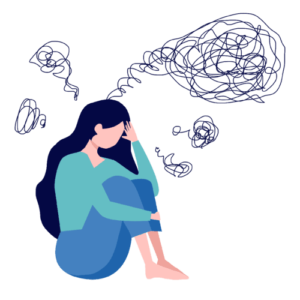
Cocaine Addiction Test
Answer these simple questions to understand more about your Cocaine Addiction. We share instant results and keep your information confidential.

What is Cocaine Addiction Test?
Cocaine addiction assessment is a process used to evaluate an individual’s dependency on cocaine. It involves various methods, including interviews, questionnaires, and medical exams, to gauge the severity of addiction and its impact on physical and mental health. Professionals assess the frequency and quantity of cocaine use, withdrawal symptoms, and behavioral patterns to determine the appropriate treatment plan. A comprehensive assessment helps tailor interventions and support to address the specific needs of the person struggling with cocaine addiction.
Who can benefit from this Cocaine Addiction Test?
Anyone who is suspected of or known to be using cocaine and experiencing negative consequences related to their drug use can benefit from a cocaine addiction assessment. This includes individuals struggling with cocaine dependence, seeking treatment options, or those experiencing physical and psychological effects of addiction. The assessment can help identify the severity of the addiction, underlying health issues, and co-occurring mental health disorders, leading to personalized treatment plans and support services that promote recovery and overall well-being. Early detection and intervention through assessment can significantly improve the chances of successful rehabilitation.


Cocaine Addiction Test Accuracy
The accuracy of a cocaine addiction assessment depends on the thoroughness of the evaluation process and the expertise of the professionals conducting it. When performed by qualified and experienced healthcare professionals, the assessment can be highly accurate in identifying the presence and severity of cocaine addiction. However, it is essential to consider that self-reporting by individuals and the complexity of addiction can present challenges. To enhance accuracy, multiple assessment tools, interviews, and collateral information from family or friends may be used to gain a comprehensive understanding of the individual’s drug use and related issues.
Types of Cocaine Addiction Test
Behavioral Observations:
Evaluates observable behaviors and signs of addiction to gauge its impact on functioning and relationships.
Urine Drug Tests:
Detects cocaine metabolites in urine samples, verifying recent drug use and aiding in treatment planning.
Addiction Severity Index (ASI):
Assesses physical, psychological, social, and legal aspects of addiction, helping tailor treatment interventions.
Clinical Interviews:
Informal discussions between professionals and patients, exploring drug history and its effects on daily life and mental health.
Structured Interviews:
Formal, standardized questionnaires used to assess addiction severity and related factors, providing a systematic approach to gather information.
Psychological Testing:
Assesses cognitive and emotional aspects, identifying potential co-occurring mental health disorders, and aiding in treatment planning.
Handling Cocaine Addiction Issues
Handling cocaine addiction issues is a complex process that requires professional help and support. If you or someone you know is struggling with cocaine addiction, consider the following steps:
- Acknowledge the Problem: The first step is to recognize that there is an addiction issue that needs to be addressed. Denial is common in addiction, but acknowledging the problem is essential for seeking help.
- Seek Professional Help: Consult with a healthcare professional or addiction specialist who can provide guidance and create a personalized treatment plan. They can assess the severity of the addiction and recommend appropriate interventions.
- Detoxification: Cocaine addiction often requires a medically supervised detoxification process to safely manage withdrawal symptoms. This process may take several days, and it’s crucial to have medical support during this time.
- Counseling and Therapy: Behavioral therapy is a fundamental aspect of addiction treatment. Individual counseling, group therapy, or cognitive-behavioral therapy (CBT) can help identify triggers, develop coping strategies, and address underlying issues that may contribute to the addiction.
- Support Groups: Participating in support groups, such as Narcotics Anonymous (NA), can provide a sense of community and understanding from others who have experienced similar struggles. Peer support can be a valuable part of the recovery journey.
- Lifestyle Changes: Adopting a healthier lifestyle can support recovery. This includes regular exercise, balanced nutrition, sufficient sleep, and avoiding environments where drug use is prevalent.
- Avoid Triggers: Identify and avoid situations or people that may trigger the urge to use cocaine. This may involve making significant changes to one’s social circles or routines.
- Medication: In some cases, medication may be prescribed to manage cravings or treat co-occurring mental health disorders that contribute to addiction.
- Relapse Prevention: Learn and practice relapse prevention strategies to minimize the risk of returning to drug use after treatment. Having a plan in place can be essential for maintaining sobriety.
- Patience and Perseverance: Recovery from cocaine addiction is a challenging and ongoing process. It’s essential to be patient with oneself and stay committed to the recovery journey, even if setbacks occur.
Remember that overcoming addiction is not something that can be done alone. Having a strong support system, including friends, family, and professionals, is crucial. Encourage open communication and empathy throughout the recovery process.
If you are seeking help for yourself or someone else, don’t hesitate to reach out to addiction treatment centers or local resources for support.